Ramazan, the month of food and festivities
Devotion and piety apart, this month cumulatively brings people together
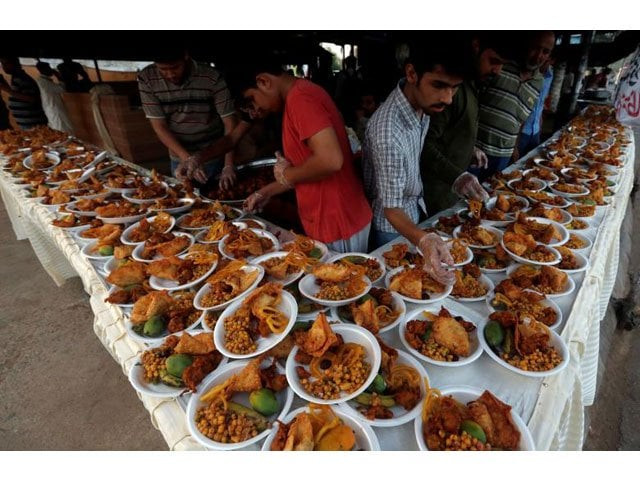
Men arrange food plates for passersby to break their fast in Karachi. PHOTO: REUTERS
The aroma of food starts to embrace our senses as the women at home begin to prepare delicious meals. Dahi baras, chaat, pakoras, juices and fresh seasonal fruits invite one to satiate their taste buds.
Iftaar meals are distributed among the neighbours, relatives and friends while at markets, preparation for iftar starts after the Asr prayers as shops adorn themselves with a variety of dishes.
Then, there’s more to this month than just scrumptious food the high spirits brought about by this month are inexpressible. Devotion and piety apart, this month cumulatively brings people together.
The month is capable of being the pioneer of a healthy life if a few principles of iftari are followed.
Looking for a place to binge eat this Ramazan?
While one is tempted to eat all they can right from the moment of breaking their fast, it is best to be acquainted with a few health rules.
Breaking the fast with a date is important for it naturally produces sugar in the body. Using salt is as much beneficial as it fulfills the lack of salt and minerals in the body during extreme weather.
While the body needs proteins, fat and water, breaking the fast with juices in large quantities is not advised. Similarly, breaking the fast with fatty food items might compel one to bypass the dinner.
Next up, who can forget iftar parties where people put in a lot of effort to get together and enjoy the delicious meals.
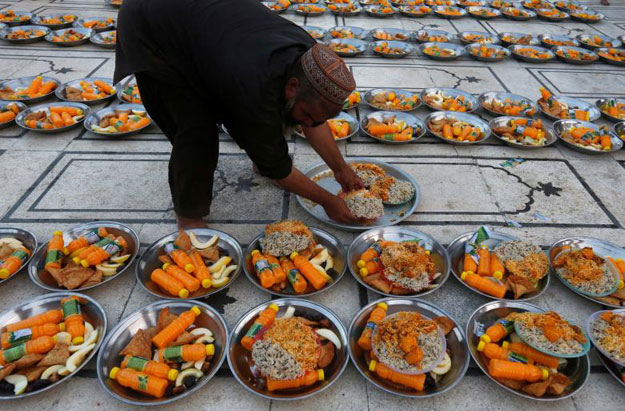
When one looks back, they find the rich Islamic culture equally evident in the culture of Delhi dating back to half a century.
The women used to soak lentils immediately after offering Zuhr prayers so that they’d be ready to cook in two to three hours. Even in the poorest of households, iftar would be prepared with great leisure and zeal.
Firstly, a portion of iftaar was sent to the nearby mosque or given to the poor. Food coming from every household was then combined at the mosque for further distribution among the needy.
Ramazan for non-Muslims: An etiquette guide
Recalling the sehri time; there were no alarms or mobile phones. The announcers would essentially roam the streets with their drums, going house to house, screaming:
‘sehri ko utho, ghaflat choro’
(Break free from laziness, get up for the sehri)
Even in this modern era, Gulab Yadav, a resident of Uttar-Pradesh’s area Mubarak Pur, works 11 months of the year in Delhi when he goes to his village to volunteer as a sehri singer.
According to him, he is carrying forward his father’s occupation with immense dedication. Such people can be found all over India, which exemplifies interfaith harmony at its best.
Presently, the initiation of ‘Ramzan Walk’ in the area surrounding Delhi’s Jamiya Mosque is a positive and a much welcomed step. People enthusiastically take part in the walk and enjoy the traditional iftar meals.
The article originally appeared on BBC Urdu



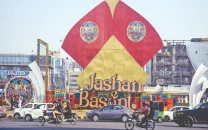
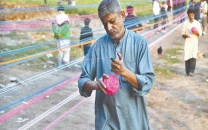
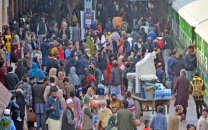













COMMENTS
Comments are moderated and generally will be posted if they are on-topic and not abusive.
For more information, please see our Comments FAQ